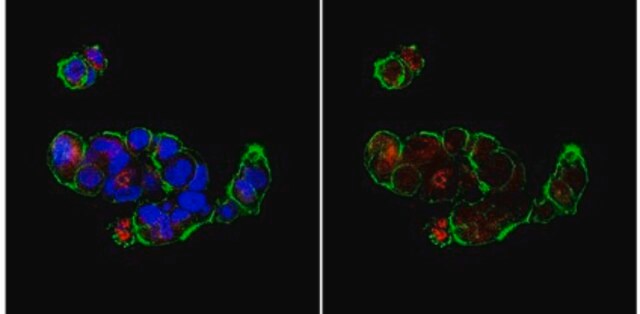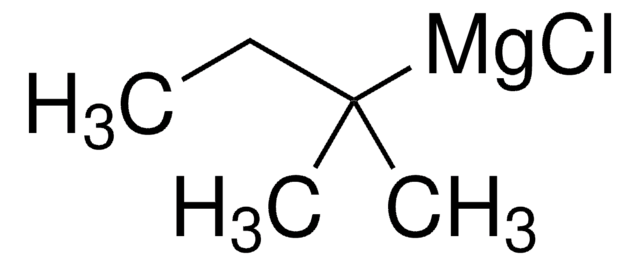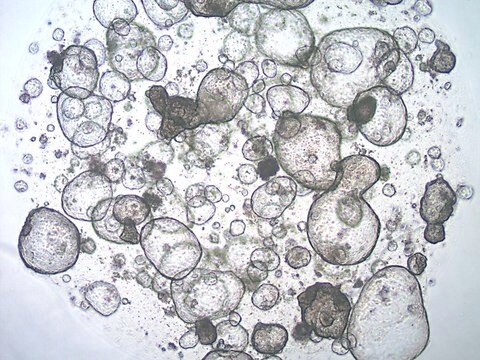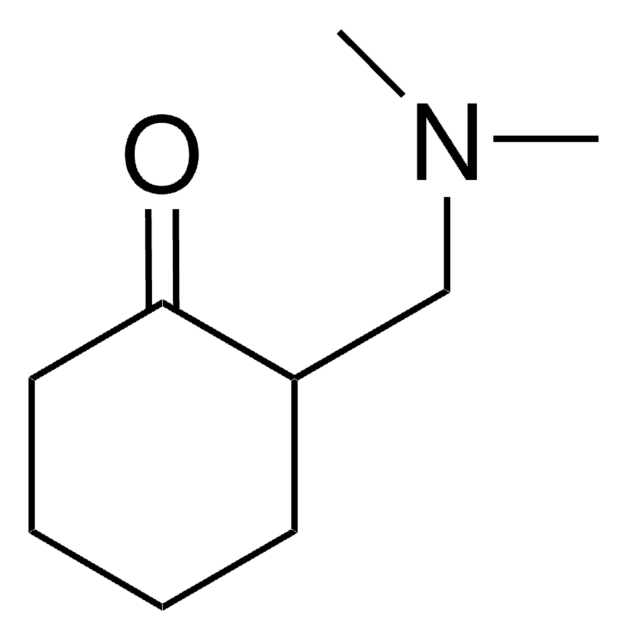MAB1383
Anti-Integrin α4 Antibody, clone HP2/1
clone HP2/1, Chemicon®, from mouse
Synonym(s):
CD49d
About This Item
IHC
IP
immunohistochemistry: suitable
immunoprecipitation (IP): suitable
Recommended Products
biological source
mouse
Quality Level
antibody form
purified immunoglobulin
antibody product type
primary antibodies
clone
HP2/1, monoclonal
species reactivity
human, bovine, rat
manufacturer/tradename
Chemicon®
technique(s)
flow cytometry: suitable
immunohistochemistry: suitable
immunoprecipitation (IP): suitable
isotype
IgG1
NCBI accession no.
UniProt accession no.
shipped in
dry ice
target post-translational modification
unmodified
Gene Information
human ... ITGA4(3676)
rat ... Itga4(311144)
Specificity
Immunogen
Application
Immunohistology on frozen tissue sections
Immunoprecipitation
Optimal working dilutions must be determined by end user.
Cell Structure
Integrins
Linkage
Physical form
Storage and Stability
Other Notes
Legal Information
Disclaimer
Not finding the right product?
Try our Product Selector Tool.
Storage Class Code
12 - Non Combustible Liquids
WGK
WGK 2
Flash Point(F)
Not applicable
Flash Point(C)
Not applicable
Certificates of Analysis (COA)
Search for Certificates of Analysis (COA) by entering the products Lot/Batch Number. Lot and Batch Numbers can be found on a product’s label following the words ‘Lot’ or ‘Batch’.
Already Own This Product?
Find documentation for the products that you have recently purchased in the Document Library.
Our team of scientists has experience in all areas of research including Life Science, Material Science, Chemical Synthesis, Chromatography, Analytical and many others.
Contact Technical Service







